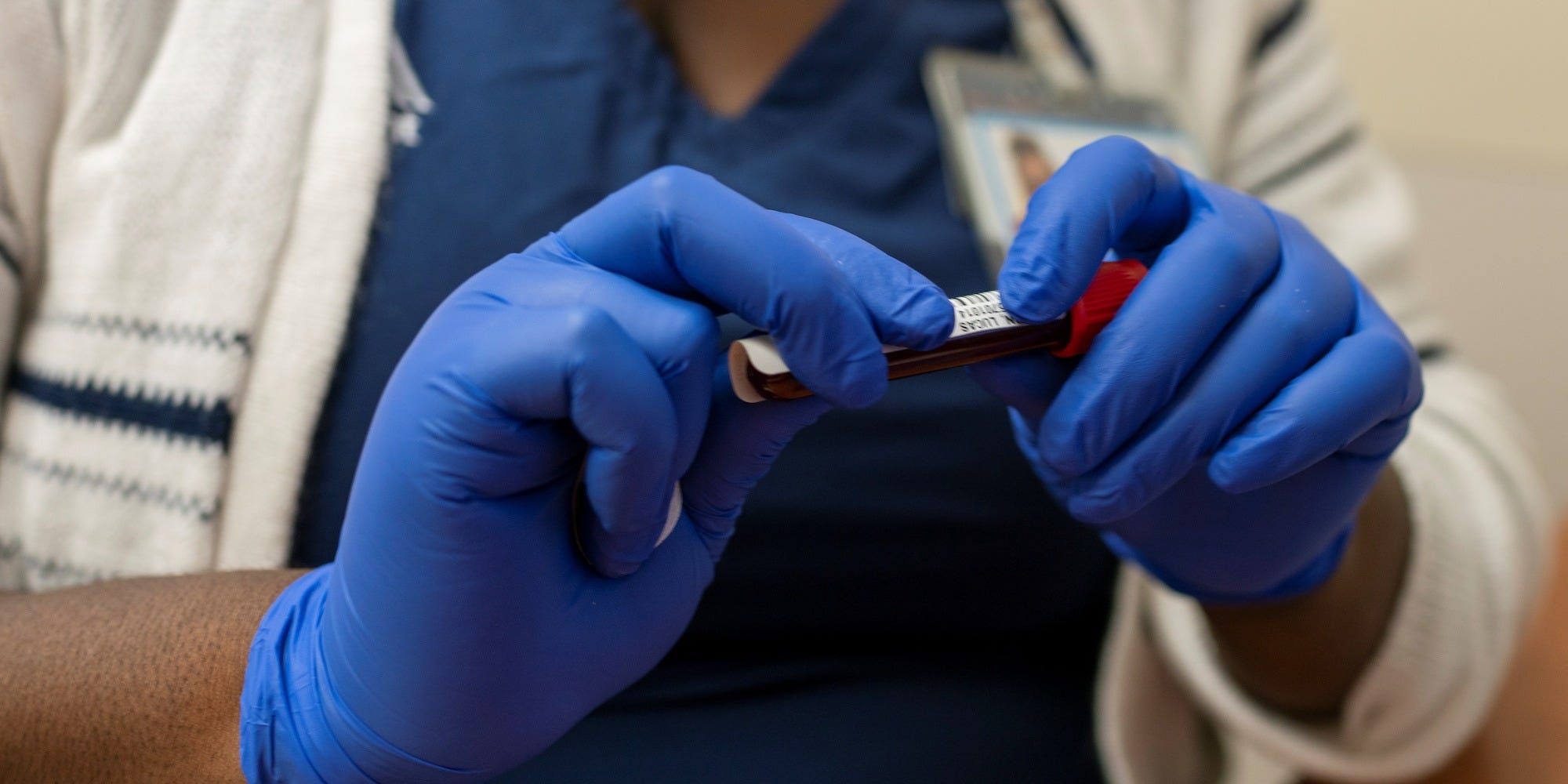
- Sorrento Therapeutics soared on Thursday after the biotechnology firm received clearance from the FDA to proceed with a phase I clinical trial evaluating COVI-GUARD, an antibody-based COVID-19 test.
- Sorrento is targeting a potential emergency use authorization submission to the FDA before the end of this year.
- Sorrento initiated manufacturing processes to produce 50,000 doses in anticipation of receiving emergency use authorization for the COVID-19 antibody.
- Visit Business Insider’s homepage for more stories.
Sorrento Therapeutics soared on Thursday after the biotechnology firm received FDA clearance to proceed with a phase I clinical trial evaluating STI-1499, also known as COVI-GUARD, a “neutralizing” antibody-based COVID-19 test.
Shares traded up as much as 27% to $10.60 in Thursday trades.
Sorrento expects a quick enrollment phase for the clinical trial and expects this trial to be followed by large trials targeting a potential emergency use authorization submission to the FDA as early as the end of this year.
The firm has initiated manufacturing processes to produce 50,000 doses in anticipation of receiving emergency use authorization for the COVID-19 antibody.
According to Sorrento, its COVID-19 antibody "has been 100% effective against the highly contagious D614G variant strain," which is a mutation variant of SARS-CoV-2.
"The potentially high potency of STI-1499 antibody may allow for rapid scaling up of manufacturing operations," Sorrento said.
Sorrento said it submitted data generated from testing on Syrian Golden hamsters infected with SARS-CoV-2 to the FDA in support of its antibody testing trial.

